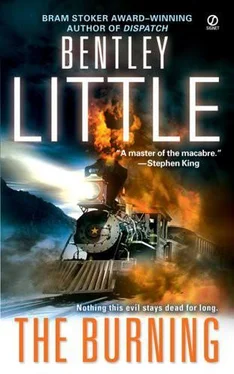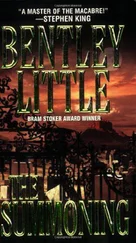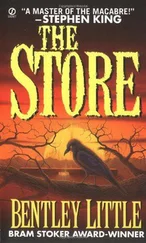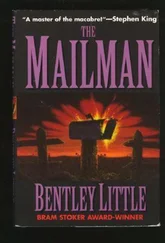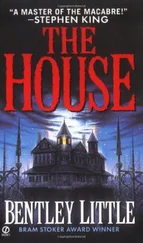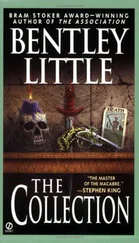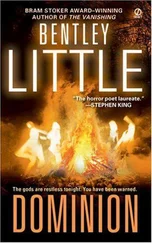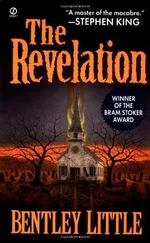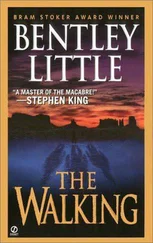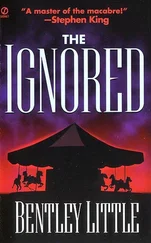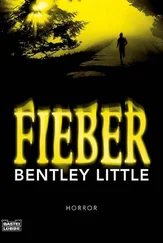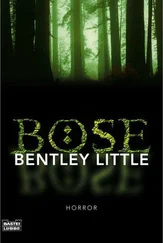He made himself a ham sandwich, watched the news, got tired of TV and turned on his stereo, tried to read a book, couldn't concentrate, turned on the TV again.
The lights went out.
It was dark now, night. He felt his way over to the supply cabinet where he kept his emergency gear and pulled out a battery-powered lantern that he immediately switched on and placed atop the coffee table. In the odd glow of the fluorescent light, he found candles, and he went about setting them up at prearranged points around the room, lighting them. The cabin wasn't fully illuminated, but at least he could see.
Why was there a blackout, though, and was just his place affected or all of them? He glanced out the window but could see no lights on in any of the other cabins. Taking out a flashlight, he made his way over to the phone, intending to call Stuart and find out what was going down, but the phone was dead, too.
That set off alarm bells.
A knock on the door made him jump. He immediately thought of the twins, saw in his mind's eye Ray's bloody body on the floor of his cabin. He remained in place, unmoving, hardly daring to breathe, hoping whatever was out there would give up and go away.
The knocking came again.
"Who is it?" he called, looking around for his rifle. His heart was hammering in his chest, not just because of who-or what-might be on the other side of his door, but because he shouldn't have to look for his rifle. It should have been resting in the same spot in the back of his broom closet that it always was.
Only it wasn't.
It had been taken.
The knocking continued.
"What?" he yelled, frustrated. He looked under his bed, tried his clothes closet, checked behind the couch. Nothing. He still had his ax by the fireplace, and he picked it up, hefted it in his hand and, before he could change his mind, opened the door, stepping back in case he needed room to swing.
A group of four Indians stood on his doorstep.
He frowned. Behind them, he could see a pickup truck on the road, lights on, engine still idling, man in the driver's seat. He didn't know why he hadn't heard the noise from inside the cabin. "Yes?" he said cautiously.
"We're here to pick you up," said the Indian on the left, an older gentleman with a bandanna and a ponytail.
He should have been confused. And he was. But he also should have been frightened. And he wasn't. He stepped onto the porch and the Indians nodded.
"Let's go," Ponytail said.
"Where?" Henry asked, realizing with something like amazement that if the answer was right, he would accompany them.
"To the Point."
The answer was right.
Twenty-three
Jarrett, Nevada
"Children! Children! Stay away from there! Brian, get back!"
Bees crawled over the outside of the kindergarten classroom dozens thick, individual insects falling onto the ground below like drops of water melting from an icicle. Miss Iris had never seen anything like it. She'd already called the custodian, who was on his way over to take care of the problem, but the kids were fascinated by the bees, and though Ashley Curtis had already been stung, the teacher was having a hard time keeping the other kids away.
Just as frightening was the black mold that was growing on the wall next to the bee swarm, just below the eave of the building.
Neither the bees nor the mold had been there an hour ago.
"Back in the room!" she ordered. "Everyone back inside!"
"But it's recess!" Joel complained.
"We'll have recess after Mr. Gehring takes care of the bees. But if you don't listen to me and go back inside right now, there won't be any recess at all."
That got them. There was moaning and whining, but they dutifully filed back into the classroom and took their places on the learning rug. A train went by on the tracks next to the school, rattling the windows as it always did, and though most of the kids were used to it by now, some of the boys still craned their necks to see over the desks. Miss Iris sat down in her chair, picked up Chicka Chicka Boom Boom and started reading. The children joined in, chanting the parts they knew, and soon the missed recess was forgotten.
"It's done!" the custodian announced a while later, poking his head in the door.
"Thank you, Mr. Gehring," Miss Iris said, and the class repeated it in unison: "Thank you, Mr. Gehring!"
"I've roped off that area of the playground, so you kids stay away from there, you understand? There might still be poison."
"I'll make sure they do," Miss Iris promised.
She read the children another story, then had them go to the art tables and draw pictures of their families for the upcoming back-to-school night. Afterward, she allowed them to go outside for recess. "Remember what Mr. Gehring said," she told them as she led the line of students out the door to the playground. "There's still poison on the wall and it can make you very sick. So stay behind the rope, okay?"
"Okay!" they responded.
Miss Iris dismissed them and went to look at the spot where the bees had swarmed, but instead of running off to play on the swings and slides, the children accompanied her, being careful to stay far away from the yellow rope. The bees were gone, but the black mold remained on the side of the building and it had grown in the last forty minutes. It was no longer merely an amorphous shape but now looked like a profile of George Washington's head. It resembled one of their art projects, the silhouettes they cut out of black paper.
Miss Iris' heart skipped a beat. This was no accidental resemblance. The face on the wall was too perfectly formed, too specific for that. Its shape was deliberate, although that made no logical sense whatsoever.
And the bees were coming back.
They heard the insects before they saw them, a buzzing that started out faintly, like an alarm clock beeping someplace far away, growing louder, until by the time they saw the fuzzy dark cloud swooping down between the trees toward the school building, the noise sounded to Miss Iris like two vibrators shoved up against her ears.
"Back inside!" she ordered, but her voice was lost in the din and before she could recalibrate the volume and say it again, the bees-hundreds of them, maybe thousands-had flown straight to the wall despite the residue of poison, swarming over the mold, conforming precisely to its contours, their teeming mass taking on the appearance of a three-dimensional George Washington. They were moving constantly, wings beating, legs working, bodies twitching, and the combined motion gave the appearance of a face that was alive.
And talking.
The children, who'd been hitting each other and squealing and jockeying for position, were standing still now, as though listening intently to something, and Miss Iris noticed that the noise of the bees had altered appreciably. The sound was no longer merely buzzing but buzzing with rhythm, tone, color. Buzzing that sounded eerily like a voice. When combined with the movement of the face, it appeared as though George Washington was speaking.
She couldn't make out what was being said, but the children seemed to hear something, and they listened carefully, even the squirmiest ones. Before she could order them inside, they were running as one away from the wall and toward the center of the playground. "Class!" she called, starting after them. She assumed they were rushing out to play, though the uniformity of their movements worried her, but it was clear almost instantly that they were following orders, not running for fun.
The first kids reached the playground equipment-
And began smashing their faces into the metal poles of the monkey bars and the support posts of the swings.
"Oh, my God!" she screamed. She rushed after them. "Stop! Brian! Joel!"
Читать дальше
